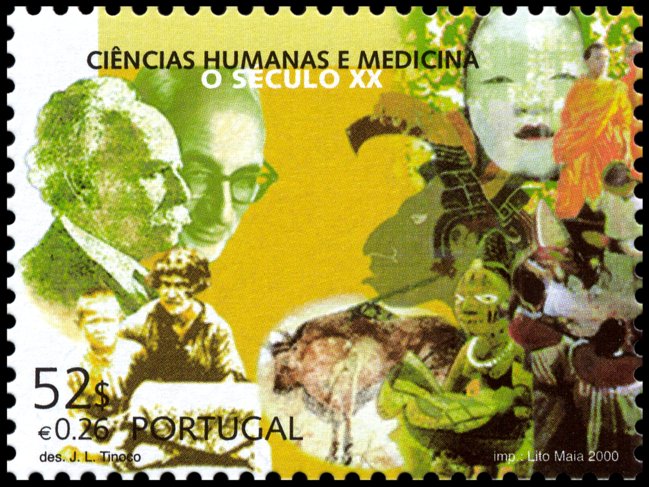Scott Atran: A memory of Lévi-Strauss

Margaret Mead, Franz Boas and Claude Lévi-Strauss on a Portuguese stampIn Memory of Claude Lévi-Strauss
In Memory of Claude Lévi-Strauss
In Memory of Claude Lévi-Strauss.
Claude Lévi-Strauss, arguably the world’s most famous and influential anthropologist, died on October 30 at the age of 100. This is a lasting memory of my first encounter with him.
In 1974, when I was a graduate student in anthropology at Columbia University, I wanted to organize a discussion of universals with people whose ideas I wished to know more about than I thought I could get from their writings. At the time, I was working for Margaret Mead as one of her assistants at the American Museum of Natural History, so I asked her how I might go about getting my wish. She said “talk to these people and see if they’ll meet.” So I went to see Noam Chomsky in Cambridge, Jean Piaget in Geneva, and Jacques Monod in Paris, and they agreed; but I wondered if Levi-Strauss would because he seemed so aloof . Margaret licked her lips and laughed: “Well, that’s his look, aloof and frail, but he’s more playful than he lets on and he’ll outlive me by thirty years if a day. Just tell him I sent you.”
I ran from La Bastille to the College de France on Rue des Ecoles and up the steps to knock on his door. He opened it, saw the sweat running down my face and, asked rather coldly: “Monsieur, que’est-ce que je peux faire pour vous?” I said I was an anthropology student from America and had a bunch of questions for him. He was gracious but distant and said, “Ask two.”
First, I asked him why he believed binary operators to be one of the fundamental structures of the human mind. He shrugged and sighed and then replied: “When I started there was still no science of mind. Saussure, Marx, Mauss and music were my guides. Since then things have changed. Psychology now has something to say.”
Then, I asked him why he became an anthropologist and he said: “I wanted to be a musician but having no talent I read philosophy and wanted to find out how different one human being’s thoughts could be from another’s and how much of that difference is truly the same. In Brazil, an opportunity came to try to find out, and I am still trying.”
He dabbed his nose with a handkerchief, rose from his chair in that regal, crane-like manner of his, thanked me for coming and started walking me back to the door, when I turned to him and said. “Margaret Mead te dit bonjour.” His dour demeanor turned into a child’s joy.” Would you like to come home to dinner with me now?” he asked, with a lightness that belonged to another person, another time. I declined with some idiot excuse because I still stank from running and didn’t want to further embarrass myself. But I asked him if he would join the discussion with Chomsky, Piaget and the others that I had forgotten to tell him about until then. “Yes,” he said kindly, “just tell me when.”
At the discussion, which took place over the course of a few days at the Abbaye de Royaumont outside Paris, Lévi-Strauss sat patiently and said nothing as others spoke their piece or pontificated, or pleaded and shouted their oppositions. But his doodles of cats and other real and fantastical animals were stunning, and those he left behind were the objects of a fierce competition among some of the conference’s participants, including myself. On the way to our last lunch, Noam Chomsky ─ who had dominated this conference of Nobel-prize winning biologists and world-famous mathematicians, philosophers, psychologists and anthropologists as I have never seen anyone do before or after ─ walked up to Lévi-Strauss and said in a shy sort of way: “Perhaps you remember me, when I sat in on your class at Harvard with Roman Jakobson?” Lévi-Strauss looked at Chomsky and said: “I’m sorry, but no.” Those were the only words he would utter in the conference room.
In an interview the following year, Levi-Strauss was asked what recent intellectual developments he considered to be important. He said that what had transpired at Royaumont was the most significant intellectual event he had thus far encountered in the second half of the twentieth century. He also implied that his time was in the past: “I imagine myself in the New World with Columbus for the first time,” he mused, “a symphony of sounds, of colors, of smells, of desires, and of hopes. Then I imagine myself on the moon with the astronauts, and all I see is gray, dust and barren rocks, and the earth I long for is far out of reach.”


No comments yet